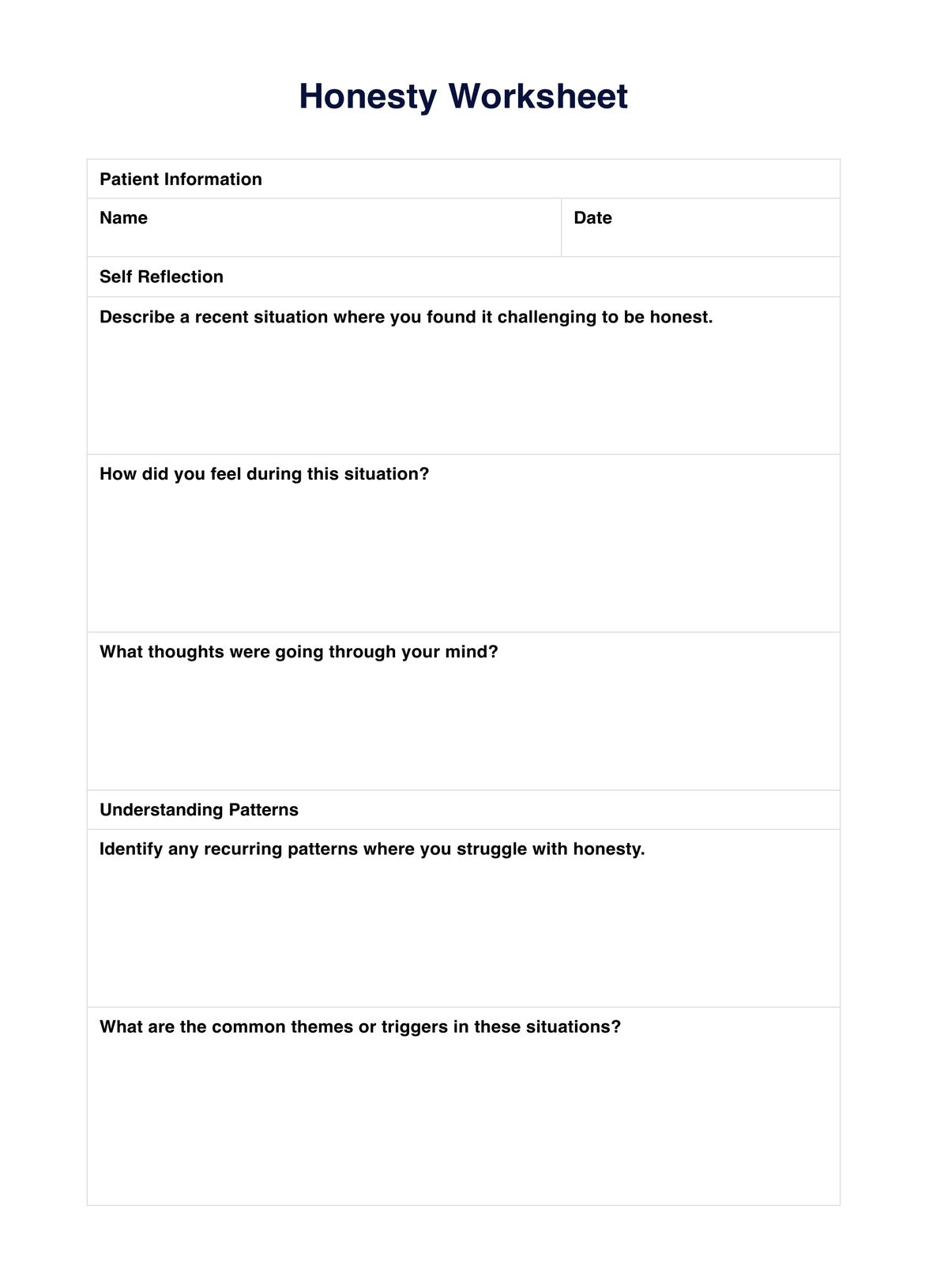Honesty can lead to increased mental well-being, improved relationships, and a sense of integrity. Being honest often reduces stress and anxiety associated with deceit, fostering a more authentic and fulfilling life.

Honesty Worksheets
Explore the transformative power of honesty with our comprehensive guide, featuring effective worksheets and insights for therapists and patients.
Honesty Worksheets Template
Commonly asked questions
To practice honesty while protecting others' feelings, focus on kindness and compassion. Choose words thoughtfully, and consider the timing and context of your honesty to ensure it's constructive and empathetic.
Honesty builds trust and strengthens relationships in personal and professional settings, as honest action forms the foundation of ethical behavior and trust. It includes the foundation of ethical behavior, encourages authenticity, and promotes respect and understanding between individuals.
EHR and practice management software
Get started for free
*No credit card required
Free
$0/usd
Unlimited clients
Telehealth
1GB of storage
Client portal text
Automated billing and online payments











